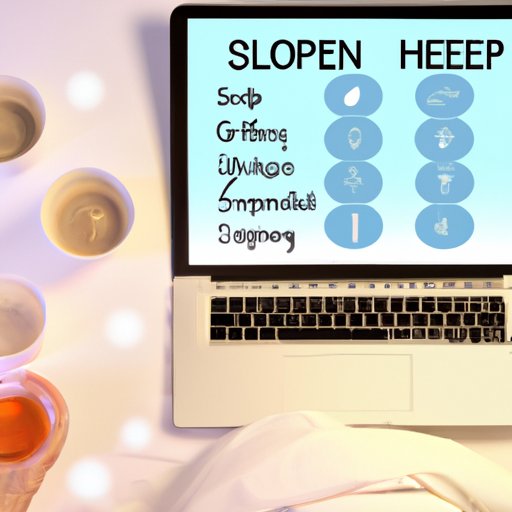
The Ultimate Guide to Falling Asleep Quickly
Sleep is essential for maintaining good health and wellbeing. However, many people struggle with falling asleep quickly, which can lead to fatigue, decreased productivity, and a compromised immune system. If you’re someone who finds it difficult to drift off to dreamland, don’t worry! In this article, we’ll provide you with tips and tricks to help you fall asleep quickly.
Create a Bedtime Routine
One of the best things you can do to promote healthy sleep is to establish a consistent bedtime routine. Your routine should include relaxing activities that help you wind down and signal to your body that it’s time for sleep. This can include taking a warm bath or shower, reading a book, or listening to soothing music. Choose activities that you enjoy and that help you feel calm and relaxed.
It’s also important to establish a regular sleep schedule. Try to go to bed and wake up at the same time every day, even on weekends. This helps regulate your body’s circadian rhythm, which is essential for healthy sleep.
Limit Screen Time Before Bed
The blue light emitted by electronic devices, such as phones, computers, and tablets, can interfere with your body’s secretion of the hormone melatonin, which helps regulate sleep. To minimize the impact of blue light on your sleep, avoid using electronic devices for at least an hour before bedtime. If you must use your phone or computer, consider using blue light filters or install an app that reduces blue light emission. Alternatively, switch to reading an old-fashioned paper book before bed instead of reading on a digital device.
Make Your Bedroom Conducive to Sleep
Your sleep environment plays a significant role in your ability to fall asleep quickly. To optimize your sleep environment, make sure your bedroom is cool, dark, and quiet. Blackout curtains, earplugs, or a white noise machine might help you create the ideal sleep setting.
Choose comfortable bedding that provides support and suits your sleeping preferences. If you’re sharing the bed, make sure the mattress is large enough to accommodate both of you comfortably. It’s also important to keep your bedroom clean, tidy, and free of clutter. A messy bedroom can induce stress, which can hinder your ability to relax and sleep.
Practice Relaxation Techniques
Relaxation techniques can help you let go of stress and anxiety and promote relaxation, thus facilitating your ability to fall asleep. Deep breathing, meditation, and progressive muscle relaxation are popular relaxation techniques that can help calm your mind and promote relaxation. To try deep breathing, inhale for four seconds, hold your breath for seven seconds, and exhale for eight seconds. Repeat this for a few minutes until you feel completely relaxed.
You can also try aromatherapy or listen to calming music to put your mind at ease. Stretching or light yoga can also be helpful to release muscle tension and relax your mind. Whatever it is, choose activities that help you feel relaxed and calm. This can help you prepare your mind and body for a peaceful night’s sleep.
Avoid Caffeine and Alcohol
Caffeine is a stimulant that can keep you awake, so it’s best to avoid caffeine for at least six hours before bed. Similarly, while alcohol might make you feel drowsy initially, it can disrupt your sleep and leave you feeling groggy in the morning. It’s best to limit consumption or abstain from alcohol, especially before bedtime.
Exercise Regularly
Regular physical activity can help you achieve better quality sleep. Try to exercise earlier in the day, however, as it can stimulate your body and make it more challenging to fall asleep if done closer to bedtime. Try getting at least 30 minutes of moderate exercise five times a week to get your body moving and improve your sleep quality.
Consider Supplements or Sleep Aids
While natural supplements and sleep aids can be useful in helping you fall asleep quickly, it’s important to consult with a healthcare professional before starting any supplementation regimen. Melatonin, a natural hormone that regulates sleep, is a popular sleep supplement and can be beneficial to some, but not others. Additionally, over-the-counter sleep aids should only be used sparingly and with caution as they might cause dependency and undesirable side effects.
Conclusion
Getting enough quality sleep is crucial to maintain good health and wellbeing. If you’re struggling to fall asleep quickly, try the tips and tricks in this article. Creating a bedtime routine, minimizing screen time before bed, optimizing your sleep environment, practicing relaxation techniques, moderating caffeine and alcohol intake, and exercising regularly can all help you achieve better sleep. Remember, establishing good sleep habits can take time and patience, so be persistent and consistent in your efforts and soon you will be on your way to a good night’s sleep.




